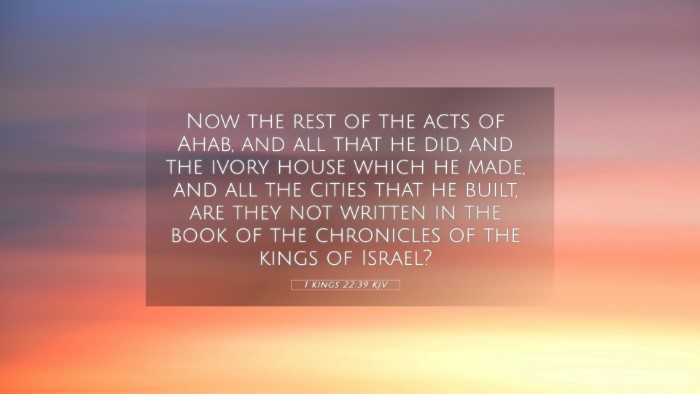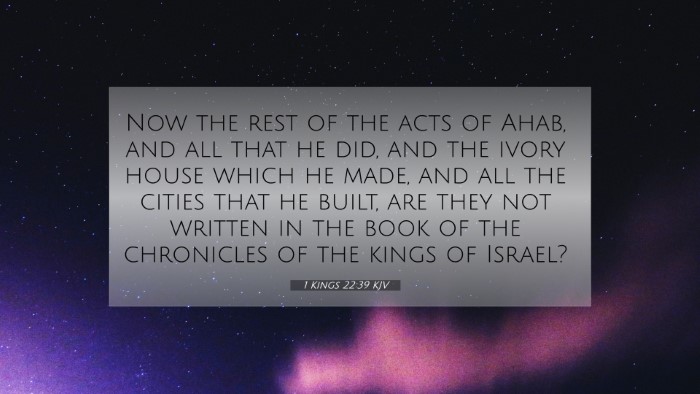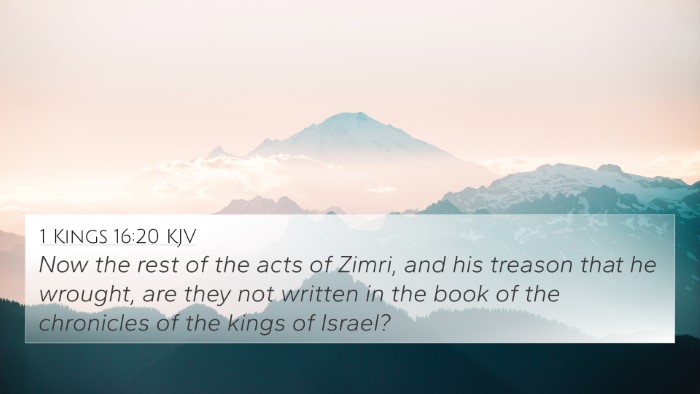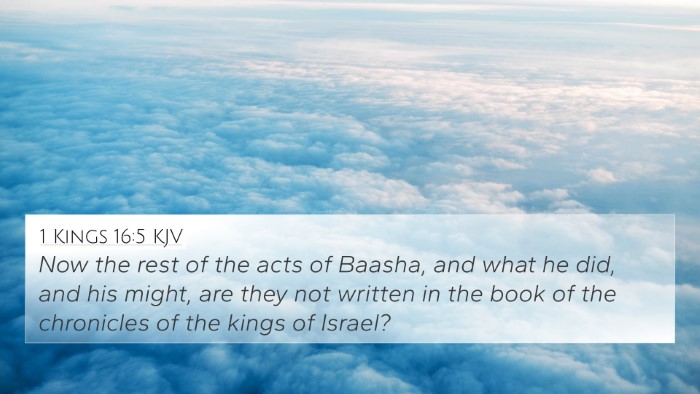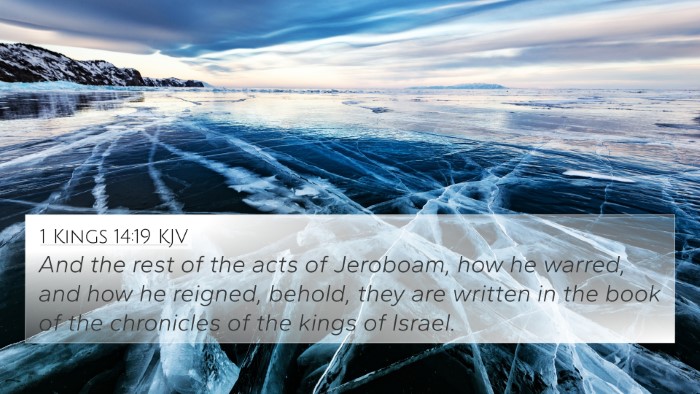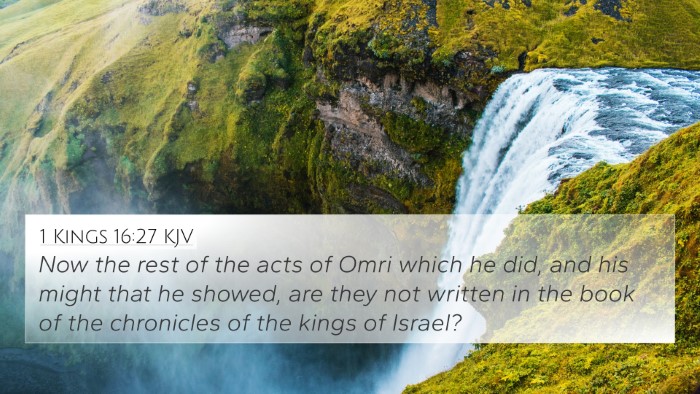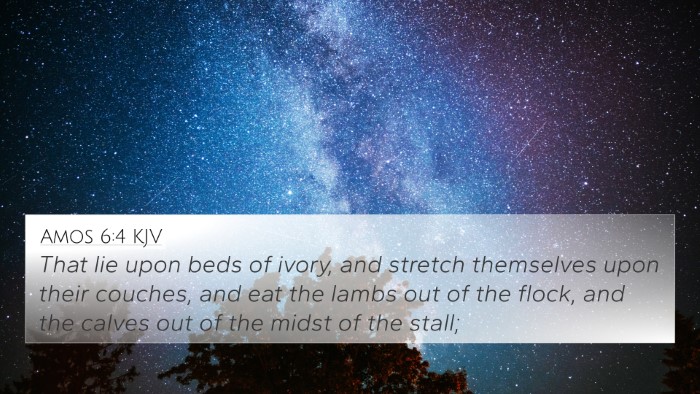Understanding 1 Kings 22:39
1 Kings 22:39 states: "Now the rest of the acts of Ahaziah, which he did, are they not written in the book of the chronicles of the kings of Israel?" This verse serves as a bridge in the narrative, providing insight into the reign of Ahaziah and ultimately drawing attention to the historical records that document the events of Israel's kings.
Meaning and Interpretation
In examining 1 Kings 22:39, we can draw from several perspectives provided by well-known public domain commentaries:
- Matthew Henry: Henry emphasizes the importance of historical accounts in understanding the lives and reigns of the kings of Israel. He notes that the chronicler's accounts serve as a critical remembrance of God’s sovereignty amidst the tumultuous history of His people.
- Albert Barnes: Barnes points out the value of these writings and the importance of legacy in the annals of kingship. He indicates that the reference to "the chronicles" signifies a broader historical context within which the events of Ahaziah’s reign can be comprehended.
- Adam Clarke: Clarke elaborates on the significance of preserving the history of the kings, indicating that such records reveal the moral and spiritual lessons from their reigns—lessons that remain relevant to contemporary believers.
Historical Context
The verse appears at a time when Israel was divided and facing external threats. Ahaziah's rule was marked by both political instability and moral decline. The reference to the books of chronicles connects this verse to a larger narrative of divine judgment and hope.
Cross References
1 Kings 22:39 relates closely to several other passages that help reinforce its themes:
- 2 Kings 1:1-18: Chronicles how Ahaziah inquired of Baal-Zebub.
- 1 Kings 16:30-33: Context about Ahab, Ahaziah’s father, who led Israel into idol worship.
- 2 Chronicles 21:17: Discusses the judgments against Judah during Ahaziah's time.
- Matthew 1:12: An indirect link through genealogies and the lineage of kings.
- Deuteronomy 17:18-20: Reference to the responsibilities of a king regarding the law.
- Psalm 78:70-72: About God choosing David and his lineage as an example.
- Isaiah 14:28: References the prophetic implications of Israel's kings.
- Jeremiah 22:10-12: Speaks of the judgement of kings in Israel.
- 1 Chronicles 29:29: Highlights the records of kingly acts and prophetic writings.
- Luke 1:69: Connecting the kingdom's history to the coming Messiah, Jesus.
Connecting Themes
As we study 1 Kings 22:39, it reveals several themes central to Biblical study:
- Historical Integrity: The relevance of documenting historical events within scripture serves not only as a record for the faithful but also as a warning against idolatry and disobedience.
- God's Sovereignty: Even amidst the chaotic reigns of evil kings, God's overarching plan for His people unfolds, illustrating His control over history.
- Moral Lessons: Each king's reign serves as a lesson in righteousness and faithfulness versus unfaithfulness and rebellion against God.
Tools for Further Study
To enhance understanding of 1 Kings 22:39 and other scriptures, consider utilizing the following tools:
- Bible Concordance: A concordance can help you find specific references related to themes found in this verse.
- Bible Cross-Reference Guide: Use guides to locate similar verses and explore their interconnected meanings.
- Bible Study Software: Tools that offer comprehensive cross-reference features can facilitate deeper understanding.
- Commentary Collections: Detailed commentaries provide insights from various theologians on scripture interpretations.
Conclusion
1 Kings 22:39 invites readers into a deeper exploration of Israel’s historical narrative, revealing how the documented actions of kings lead us to understand the greater themes of God's faithfulness, judgment, and the importance of historical memory in the life of faith.
This verse, while seemingly simple, opens avenues for connecting scriptures across both the Old and New Testaments, demonstrating how elements within the Bible continue to inform and shape the faith of believers today.

